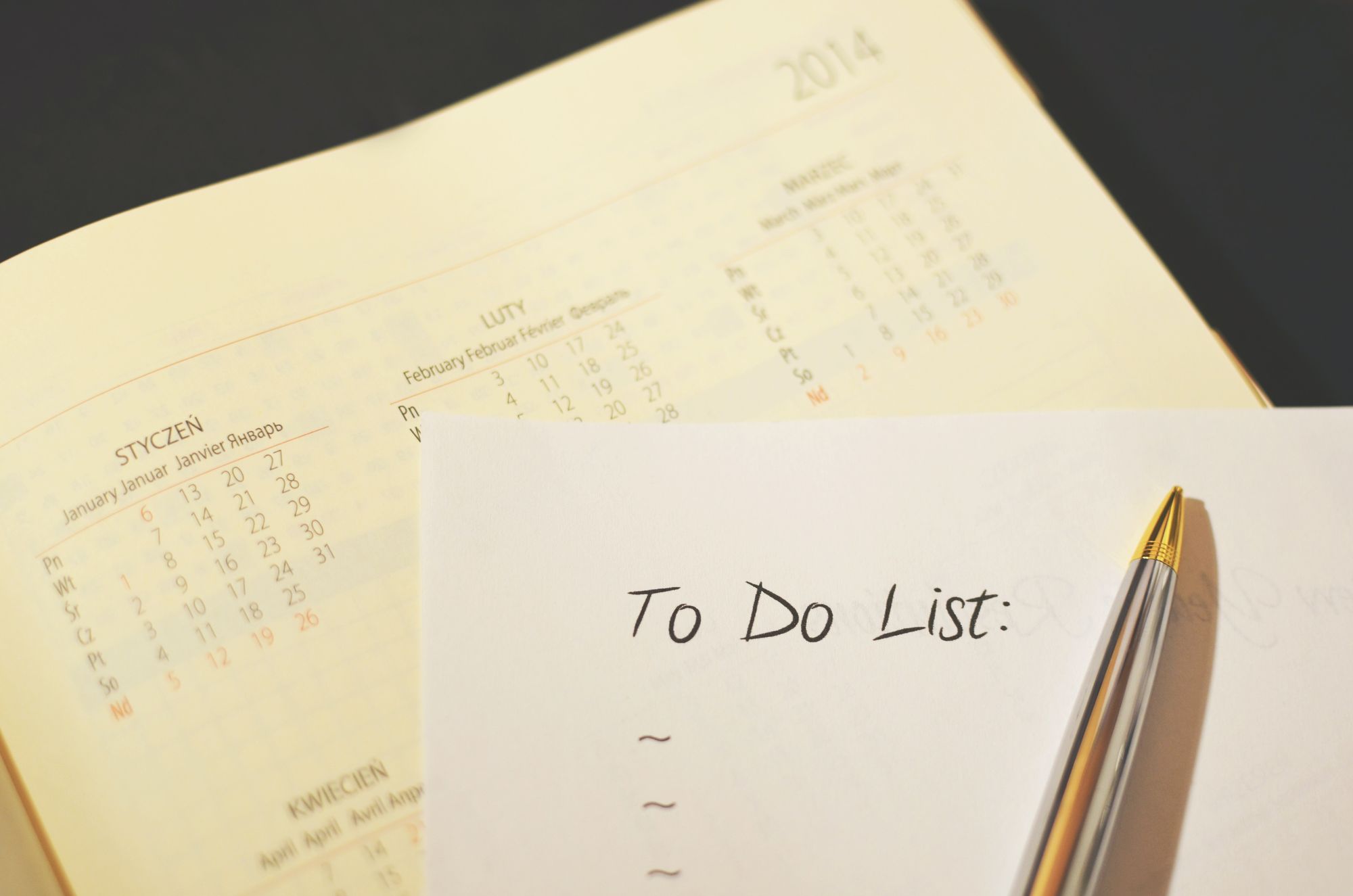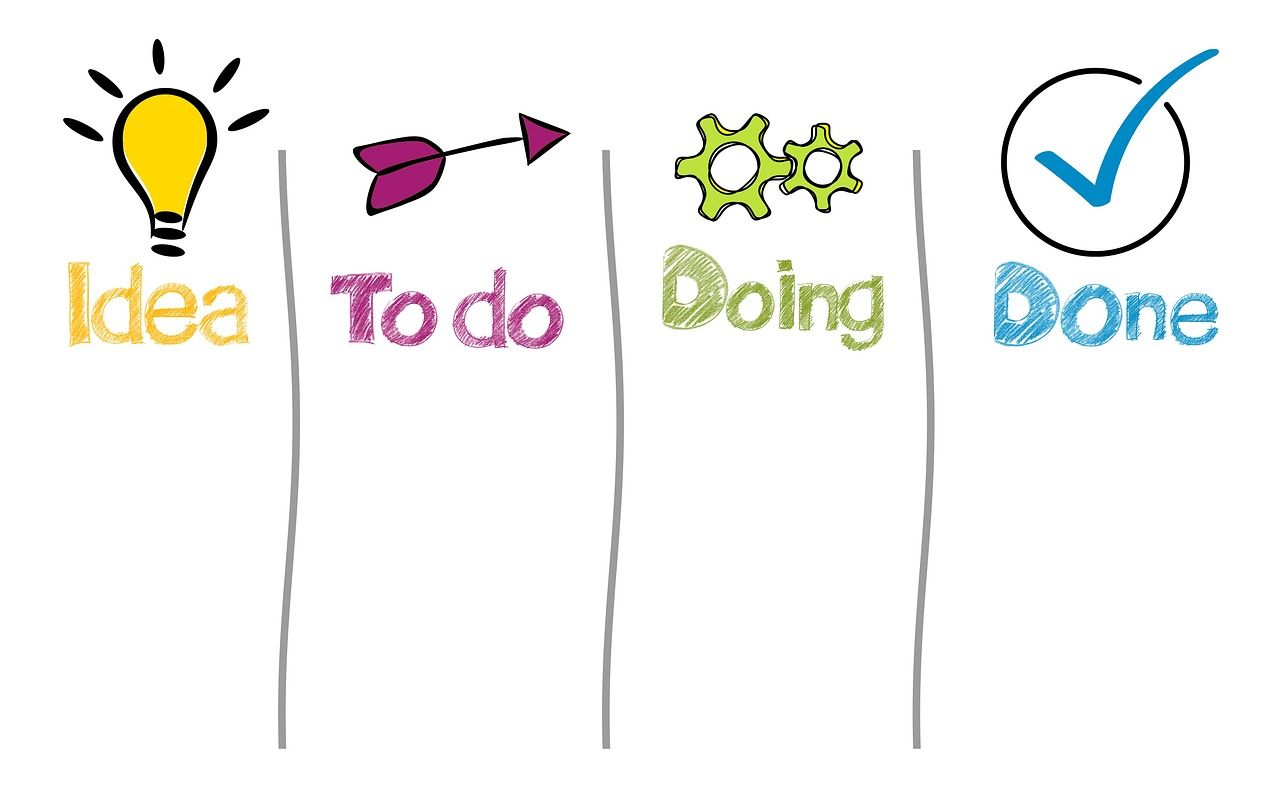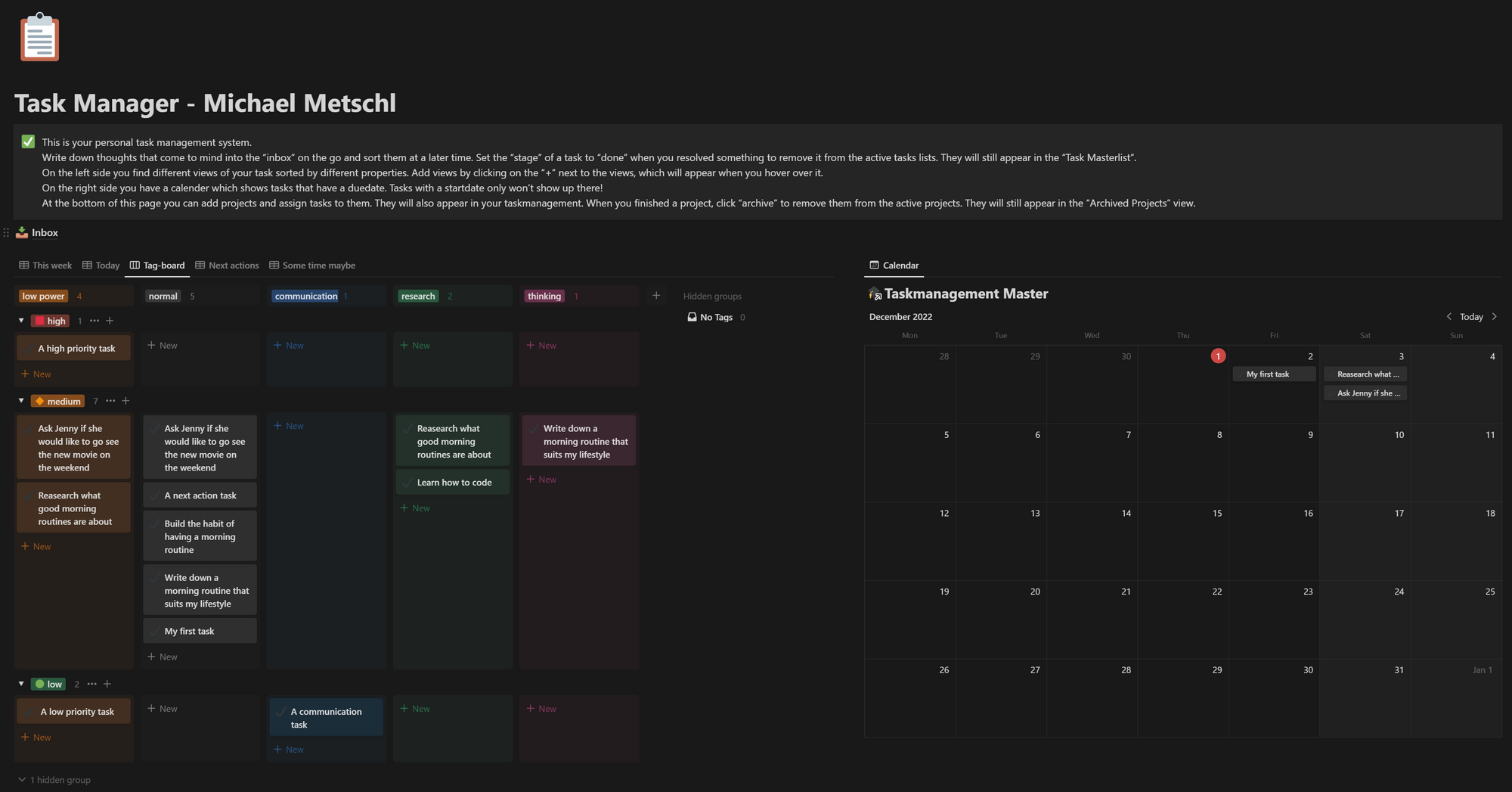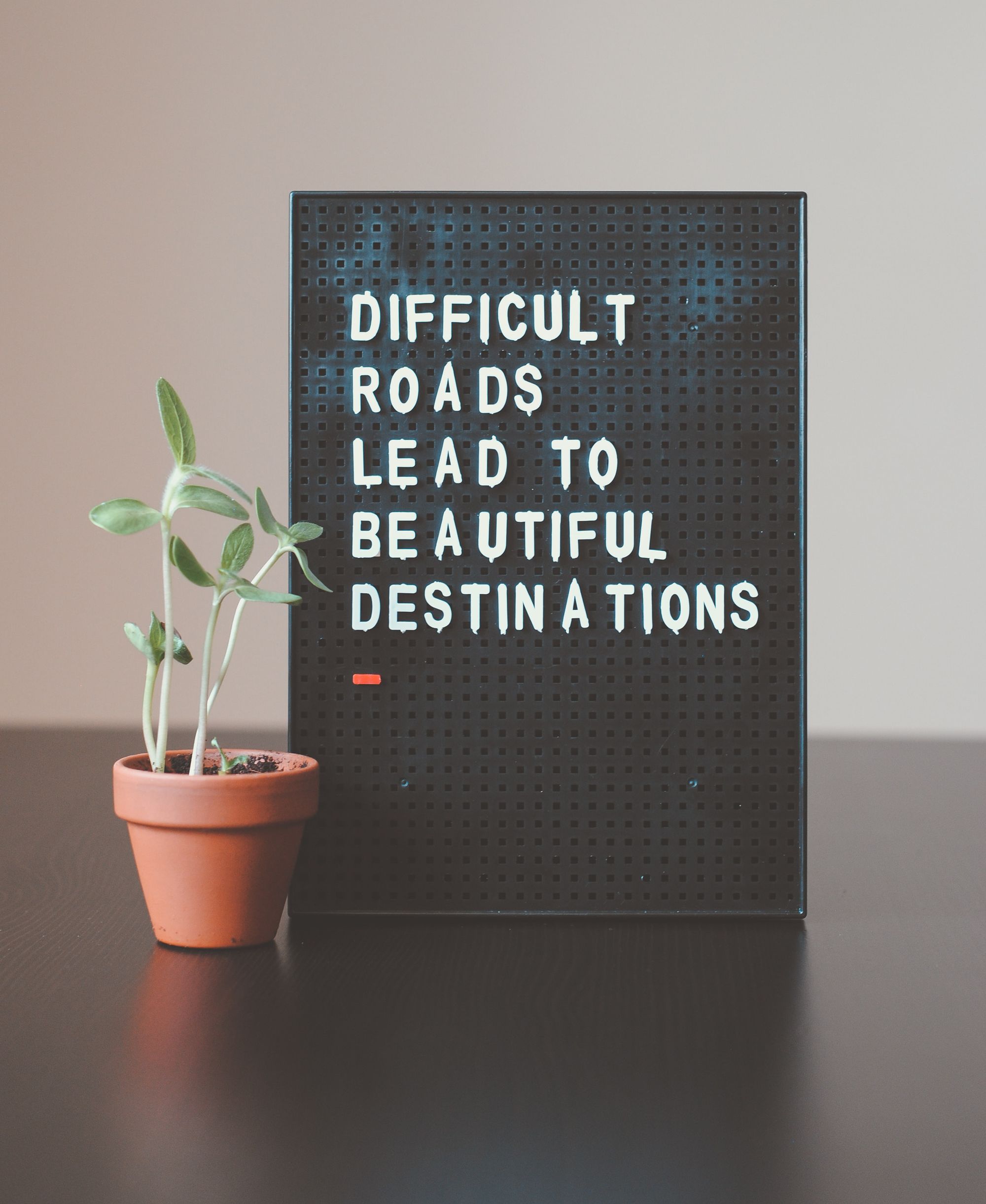Taskmanagement: Stay on top of your world

“You get to decide where your time goes. You can either spend it moving forward, or you can spend it putting out fires. You decide. And if you don’t decide, others will decide for you.” - Tony Morgan
All the previous topics “Goal-setting”, “journaling” and “habits” are nice for planning ahead and actively steer your life into the direction you want it to be. But all that is quite hard to achieve if you are stuck in your daily doings thus having no time to properly think about your life. I think many people are caught in this kind of trap, which for me is the death of dreams and achievements. To be able to think about goals and have the mental energy to do reviews and establish habits requires that you have control over your daily doings and be on top of your day to day life. If you struggle to improve your life in the direction you want but find yourself doing nothing because you're too fatigued at the end of the day and weekends are for recovering from the week's work, I want to help you.
The problem
Why are many people so stuck in their situation that there is no energy left at the end of the day to build a happier and better life? What is the reason for being often overwhelmed by to-dos? Here is a list of topics I think have a big impact on why people are sometimes unable to improve on their situation.

📚 Stacking responsibilites
If you have too much stuff to do and too much to keep in mind, it’s just normal that you have no time and brainpower for other things in life. Maybe the problem occurs because you are trying to do more stuff at work than you can handle, or you said “yes” to helping someone else too many times.
❔ Having no system to fully trust
Having many things to do simultaneously in life can be quite challenging because you don’t want to forget something. Unless you have a photographic memory it can be quite hard recall every little detail. It is natural for your brain to forget things that are not considered important for survival. Additionally you most likely won’t have the time to memorize everything you need to do on a daily basis.
🚧 The pressure of unfinished projects & tasks
Many things people do are projects. They consist of multiple tasks that need to be done to finish something. This can create pressure which might keep you awake at night. “I really need to remember setting up a dough for the pizzaparty on Wednesday” might be something you think of instead of sleeping. This is similar to the point mentioned before: you are stressed because you are scared to forget something important.
😓 Decision fatique
We all make thousands of decisions every day. I think that most decisions we make are not bad for our mood or mental health because they are easily and quickly made. If you should stop reading this blogpost right now is something that your brain processes every second. Because of the fact that it doesn’t take much energy I don’t consider decisions like this an issue. The Problem I see is when you have too much decisions to make that take a significant amount of brainpower like: “Should I buy a car or should I keep using public transport?“ or: “Should I fire my underperforming employee?”. If you have too much of those “tough decisions” to make, it gets harder and harder to make a decision at all.
👻 Fear of the unkown
I frequently observe people who would prefer to remain in a difficult circumstance than attempt something they don't know the outcome of. This is a known behaviour which is often referred to as “fear of the unkown”. That’s a reason why McDonald’s always has the same taste. People know what they can expect. They’d rather go there because they know what they’ll get than trying a new restaurant.
Those are problems I see, which can be improved by a good workflow, a suitable system and the right mindset.
The workflow
To solve some of the problems abhove you need a workflow that improves the way you handle information. This reduces stress and aids in developing a system you can rely on, which then helps in making the right decisions. The method I will be showing you is called “GTD” from the book “Getting Things Done: the art of stress-free productivity”* which is a must read if you want to improve on your life in my opinion. The method inherits 5 steps to successfully turn thoughts into actions.

📸 Capture
Capture anything that comes into your mind that needs to be taken care of. Write it down on a piece of paper or note taking app so it is off your mind and secured for later. This way you instantly load off something you would otherwise need to remember. By doing this, you free up space in your head for the bigger topics of life by not filling it with all the tasks that need to be done.
💎 Clarify
Regularly process what you captured and decide what the thing you wrote down is. This can be a project, an action or reference material, which you need for something else. Also try to make the thought you wrote down as clear as possible by adding additional information to it. That way - even if you’d read it 5 years later - you know exactly what needs to be done. Sometimes the information is not neccesary anymore because you already resolved it or it is simply not important enough. Don’t mind to delete stuff like that.
🗄️ Organize
Once your random thoughts of the week are now clarified, it is time to move them where they belong in your system. Create new projects and tasks or add information to already existing ones.
🔄 Review
You should review your inbox and tasks atleast once a week so everything stays organized and doesn’t take a huge amount of time. It’s similar to cleaning your living room. It doesn't take long to clean if you keep it organized by doing so once a week. If you don't clean for a month, it becomes a massive task. A weekly pattern for the steps “clarify” & “organize” are the perfect timeframe in my opinion.
🏃🏿♀️ Engage
Decide what you want to do by sorting tasks and projects in different ways. Decide under which circumstances and priority you want to do something. Also your available time and mental capacity plays a huge role for which tasks you should tackle next. Also decide what the time horizon for projects and tasks is.
“Getting Things Done” splits them into 6 time horizons:
- Tasks you do at the moment
- Project you are working on right now
- Areas of focus at the moment
- 1-2 year goals
- 4-5 year goals
- Life-purpose and principles
The System
As explained in my previous post a system reminds you of something, makes something easier, quicker or more error free. It can help you drastically decrease the pressure of projects and tasks. But what does a system need that you stay ontop of your days, get everything done while staying chill and not mentally exhausted? I think your task-system should consist of the following parts:

📥 Inbox
It is crucial that the resistance of writing something down anywhere is as low as possible . Establish an inbox-system that lets you instantly write down your thoughts anywhere you are. That way you can capture all the thoughts which are worthwhile and sort them later.
🗓️ Calendar
This is a powerful tool which makes your tasks for the next day or week visible. This results in less stress because a) your calender is reliable and doesn’t forget tasks and b) tells you what needs to be done next.
📐 Different sort algorithms
I have switched between many task management systems over the time and found that it should provide multiple options for sorting. That way you can decide what to do based on different situations, which makes your taskmanagement more versatile. You can increase your focus by only showing task for a specific project or you can decrease decision fatique by hiding all task that are not neccesary this week. Important to note is, that managing those sortings should be optional and easy to use. They should not be a burden. Also important to mention is, that many different sorts usually only work in digital environments.
The sortings & tags I use are:
- Timebound
good for a calender and daily planning. - Priorities
reflects and highlights things that are important to you. - Stages
gives clarity regarding the state of projects and tasks. - Environment
lets you know if you need to be in a specific place to do this task. If you are at home but a task requires to be outside it won’t work. - Tools needed
lets you know what tools you need for a given task e.g. your laptop or a screwdriver. This is similar to the environment topic. - Projects
you get more insight over your projects and see what needs to be done to finish them. - General tags
additionally I use a simple “tag” option as well. That way I can implement extra sorts that help me in different areas. Some of my tasks are tagged with e.g. “low power”. That means they don’t need much energy to be done. F.i. watching a video a friend recommended to me would be a “low power” task. - Next actions
they are the holy grail of getting things done. A perfect next action in my experience is when it tells you exactly what to do, when to do it and provides every information you need for that task. Basically you don’t have to use your brain anymore to do that task. This makes it easier to start because all the thinking has happened earlier already.
Here is an example:
You need to call your phone provider, because you want to switch your contract. The first thing most people do “if” they write the task down could look something like this:
“Call provider”.
A better tasks would look like this:
“Call phone provider XXX, tel: 01234/56778901, contract No.: 1234, I want to increase my data volume from 8 to 12gb/month, I am willing to pay 20$ max”.
It’s 5pm, after work. Imagine having a post-it like this on your desk. You don’t need to think what to do, you don’t need to search for your contract number or the phone number of the provider. Everything is ready to go. Which task do you think has a higher chance of getting finished?
This template for a good tasks doesn’t belong to next actions alone, but that’s the latest a tasks should be like this.
To combine the workflow with the system:
- Capture all your thoughts with an inbox.
- Clarify your tasks & projects by giving them due dates, tags and additional information.
- Organize your thoughts by putting them into the right buckets. I think that’s where a digital system is able to shine because this step can be mostly automated.
- Review your inbox & task regularly to keep your system up to date.
- Engage by defining next actions and minimize friction to start.

I think having your system mostly digitally enables you to automate a lot of stuff which drastically reduces the time needed to keep your system running. That is why I created an easy to use task management system in Notion - a free all in one workspace tool - for you to download. Simply duplicate the template into your own workspace.
I publish posts for this productivity series every two weeks so if you want to get notified on my releases, subscribe to my E-Mail Newsletter and follow me on social media!
Instagram | Twitter | Pinterest | Linkedin | E-Mail newsletter
Do you use a task manager? What do you think are the best ways to organize the things you want to do? Tell me your thoughts on social media!
The mindset
Lastly I would like to talk about the mindset I think is important to reduce stress in your own life and allows you to follow your own priorities.

You don’t “need” to do anything
Always keep in mind that nobody is able to force you to do something. It is always a relation between pros and cons that makes you do something. Don’t forget that you have a free will and see tasks as something you want - not need - to do.
Stop saying “yes” to everything
Saying “no” to somebody else is often saying “yes” to yourself. You don’t need to answer right away and you also don’t need to say “yes” to everything you get asked for. This doesn’t mean you should be selfish but choose wisely what you use your time for. The important thing I want to tell you is that prioritizing your own time is important because it’s the most precious thing you have.
Having no time is an illusion
You most likely have time for things you want to do. If you don’t do something you just don’t make them a priority. In my experience “having no time” is just a nicer way of saying “this is not my priority”. Everytime you don’t do something try to rephrase it. Instead of saying “I don’t have time to to cook healthy stuff” say “My health is not a priority at the moment” because that is closer to the truth than “not having time”. It is Ok that your health might not be a priority at the moment if you know the consequences. But ignoring them or being dishonest would be unwise.
Have a “mind like water”
The book “How to get things done*” I mentioned earlier also has a nice mindset example. It says you should react to inputs from the world adequately. If something happens to you, keep a calm mind, think about your reaction first and then react appropriately. Just like water: if you throw a small stone into a pont of water it will form just tiny ripples. Contrary throw a big rock into the water and it will create big splashes. Water reacts in relation to the input. That is exactly how you should try to react most of the time in my opinion.
Face your fears
As mentioned in previous posts already see fear not as your enemy but as a guideline to get out of your comfort zone. Because outside of your comfort zone is where all the fun and fullfillment lies. I bet there were situations in your life where you faced something unknown and felt like the best being in the world after you have gotten through it.
What your system should not do
Having a taskmanagement system should not make you more busy or more stressed. Always keep in mind that it is there to assist you with the things you want to do.
Conclusion
Which problems is a taskmanagement in addition to a healthy mindset about tasks able to solve:
- Reduction of 📚 overwhelming responsibilities, ❔ having no system to fully trust, 🚧 mental pressure of unfinished projects & tasks, 😓 decision fatique and 👻 the fear of changing your current state.
How a good workflow for information could look like:
- 📸 capture, 💎 calrify, 🗄️ organize, 🔄 review and lastly 🏃🏿♀️ engage.
What a system for tasks & projects should include:
- An 📥 Inbox, 🗓️ calender and different and flexible 📐 sorting algorithms.
Next time: “Second brain: Your database for everything”
The thing I didn’t tell you so far is, that a task management system alone will most likely not be able to fully resolve the problems abhove. It is perfect for staying ontop of your world and finish tasks without getting stressed out. But your life is filled with much more worthwhile information than just tasks. Recipes, knowledge, recommendations and all the other stuff your brain holds can be stored as well to give your mind more room to think creatively. The system that gathers all the information (not only tasks & projects) and provides it back to you in context when needed, is called “second brain”.
This will be descibed in the next post:
“Second brain: Your database for everything”
“Don’t be fooled by the calendar. There are only as many days in the year as you make use of. One [...] gets only a week’s value out of a year, while another [...] gets a full year’s value out of a week.” - Charles Richards
More about task/time-management
- Getting Things Done: the art of stress-free productivity - David Allen*
- How to Build the Ultimate Productivity System (2022) - Ali Abdaal
- The best way to tame your overwhelming to-do list - Thomas Frank
- 5 Time Management Tips to Work Smarter, Not Harder - the art of improvement
- How to manage your time more effectively (according to machines) - Brian Christian - TED-ed

→ Links marked with “*” are affiliate links
